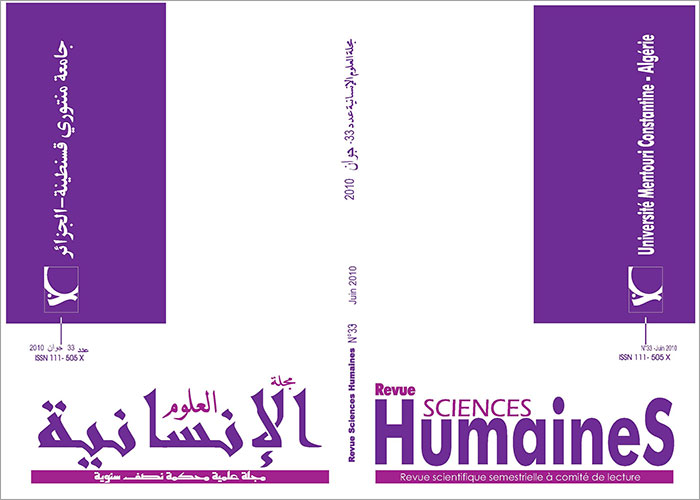E.M. Forster and the Writing of Empire: Aestheticentrism, Humanism, and Liberal Guilt
Abstract
This study suggests a different mode of viewing the contradictions inherent in E.M. Forster’s standing with regard to the British Empire. It contests the view that Forster is an anti-imperialist by making use of a wider range of his non-fictional writings. It also makes use of biographical proof to demonstrate that Forster was personally involved in the project of the British Empire, and therefore, complicit in the imperial venture. Forster’s attitude towards his country’s imperial dash is gauged within the context of his intellectual and literary relations with the Bloomsbury group. The mercurial quality of his discourse about the imperial circumstances is analysed in order to highlight the perfunctory, self-reflexive nature of his compassion with the “natives.”
Downloads
References
E.M. Forster, “Notes on the English Character” (1920), Abinger Harvest (Middlessex: Penguin Books, 1976), p. 22.
“India and the Turk.” Nation and Athenaeum. 31. (1922), pp. 844-5.
Patrick Brantlinger, Rule of Darkness: British Literature and Imperialism, 1830-1914 (Itahaca: Cornell University Press, 1988), p.19.
See Edward E. Said, Culture and Imperialism (London: Vintage, 1993); Frederick C. Crews, E.M. Forster: The Perils of Humanism (Princeton NJ: Princeton University Press), 1962; Benita Parry, Delusions and Discoveries: India in the British Imagination, 1880-1930 (London: Verso, 1998); and Stuart Christie, Worlding Forster : the Passage from Pastoral (London: Routledge), 2005.
See Mohammad Shaheen, E. M. Forster and the Politics of Imperialism (Basingstoke and New York: Palgrave Macmillan , 2004).
Quoted. in Shaheen, p. 34.
Quoted. in Shaheen, p. 35.
Shaheen, E. M. Forster and the Politics of Imperialism, p. 6.
Shaheen, p. 37.
On Forster’s standing vis-à-vis the Bloomsbury Group and his reputation as a “liberal-humanist,” see David Medalie, “Bloomsbury and other Values” in The Cambridge Companion to E.M. Forster, ed. David Bradshaw (Cambridge & New York: Cambridge UP), 2007. Medalie explains that “one of the most tenacious aspects of Forster’s popularity has been the widespread perception of him as a doughty spokesman for and zealous custodian of the liberal tradition” (32). See also David Garnett, “Forster and Bloomsbury” in Oliver Stallybrass ed., Aspects of E. M. Forster: Essays and Recollections Written for His Ninetieth Birthday (New York: Harcourt, Brace, & World. 1969), 29-35.
Quoted in Stanford Patrick Rosenbaum, The Bloomsbury Group (Toronto: University of Toronto Press), 1995, p. 81
Alaine M. Low, and Robin W. Winks, The Oxford History of the British Empire (Oxford: Oxford University Press), 1999, p. 20.
Frederick C. Crews, E.M. Forster: The Perils of Humanism (Princeton NJ: Princeton University Press), 1962, p.10.
Roy Anindyo, Civility and Empire: Literature and Culture in British India, 1822-1922 (New York: Routledge), 2005, p. 145.
S.P. Rosenbaum, p. 199
Parry, p. 228.
Hilda D. Spear and Abdel-Moneim Aly, eds, The Uncollected Egyptian Essays of E. M. Forster (Dundee: Blackness Press), 1988, p.14
Ibid.
John Henry Stape, E. M. Forster: Critical Assessments (Routledge Taylor & Francis Group), 1997, p. 151.
Forster, “The Government of Egypt.”Recommendation by a Committee of the International Section of the Labour Research Department, with Notes on Egypt. London: Labour Research Department, 1920, p. 4. All subsequent page numbers will figure in the text.
Quoted in Denis Judd, Balfour and the British Empire: A Study in Imperial Evolution, 1874-1932 (London: Macmillan & Co., 1968, 286.
Homi Bhabha, The Location of Culture (New York: Routledge), 1994; repr. 2005, p.104.
Ibid., p. 109.
Kojin Karatani, “Uses of Aesthetics: After Orientalism,” in Paul A. Bové, ed. Edward Said and the Critic: Speaking Truth to Power (Durham: Duke University Press), 2000, p.146.
Ibid., 141.
Ibid., 146
John R Ferris, “’Far too Dangerous a Gamble?’ British Intelligence and Policy During the Chanak Crisis, September-October 1922,”in B.J.C. Mc Kercher and Eric Goldstein, eds., Power and Stability: British Foreign Policy, 1865-1965. (London: Frank Crass), 2003, pp. 139-40.
Quoted in Frank Owen, Tempestuous Journey: Lloyd George, His Life and Times (New York: Mc Graw-Hill), 1955, p. 635.
Quoted in David Roessel, “Live Orientals and Dead Greeks: Forster’s Response to the Chanak Crisis.” Twentieth Century Literature 36. 1 (Spring 1990), p. 45.
Forster, “Our Graves in Gallipolli” (1922), in Abinger Harvest (Middlessex: Penguin Books), 1976, p. 44.
See David Spurr, The Rhetoric of Empire: Colonial Discourse in Journalism, Travel Writing and Imperial Administration (Durham and London: Duke University Press 1993), p. 28 for the idea of appropriation from the coloniser, and p. 103 for the analysis of Rousseau who departs from a thesis of hailing Oriental languages as filled with ‘life and warmth’ yet by negating this same thesis through the deployment of Western logic and precision.
Uday Singh Mehta, Liberalism and Empire: A Study in Nineteenth-Century British Liberal Thought (Chicago: the University of Chicago Press), 1999, p 47.
Bill Aschcroft et al., Key Concepts in Post-Colonial Studies (London & New York: Routledge), 1998; repr. 2001, p. 27.
Forster, “Reflections on India.” Nation and Athenaeum 30. 21 January 1922, p. 614. Subsequent page numbers will be indicated in the text.
Michael Gorra, After Empire: Scott, Naipaul, Rushdie (Chicago: University of Chicago Press), 1997, p. 28.
Parry, p. 30.
Desmond Stewart, The Middle East: Temple of Janus (London: Doubleday), 1971, p. 160.
Barbara Harlow, Orientalism and Imperialism: A Documentary Sourcebook (Oxford: Blackwell Publishing), 1999, p. 747.












